
Embark on your French learning journey with our free PDF guide tailored for beginners. Discover essential phrases, vocabulary, and grammar to start speaking confidently. Perfect for new learners!
Why Learn French?
Learning French opens doors to a rich cultural heritage, enhanced travel experiences, and improved career opportunities. As an official language in numerous countries and international organizations, French is a valuable skill for global communication. It also enriches your understanding of literature, art, and cuisine. Additionally, studying French can boost cognitive abilities and memory; With free PDF resources and guides, beginners can easily access structured lessons to start their journey. Whether for personal growth or professional advancement, learning French is a rewarding choice that connects you to over 274 million speakers worldwide. Start your journey today and unlock new possibilities!
The Importance of Starting with the Basics
Mastery of any language begins with a strong foundation. For French, this means understanding the alphabet, pronunciation, and basic grammar rules. Without these essentials, progress can be hindered, making communication difficult. Free PDF guides designed for beginners provide a clear, step-by-step approach to learning these fundamentals. They often include exercises and practical phrases to reinforce learning. Starting with the basics ensures a smooth transition to more complex topics like verb conjugation and sentence structure. By building a solid groundwork, learners can confidently progress and enjoy the process of becoming proficient in French. Consistency and practice are key to success from the very start.
What to Expect in a Beginner’s French PDF Guide
A beginner’s French PDF guide typically includes a structured introduction to the language, focusing on essential elements like the French alphabet, basic greetings, and common phrases. It often features sections on pronunciation, grammar fundamentals, and vocabulary building. Many guides include interactive exercises, quizzes, and practical dialogues to help learners practice. Additionally, they may cover cultural insights to enhance understanding. The content is usually organized in a logical progression, starting from the basics and gradually introducing more complex concepts. These guides are designed to be user-friendly, making it easy for learners to follow along and practice at their own pace.
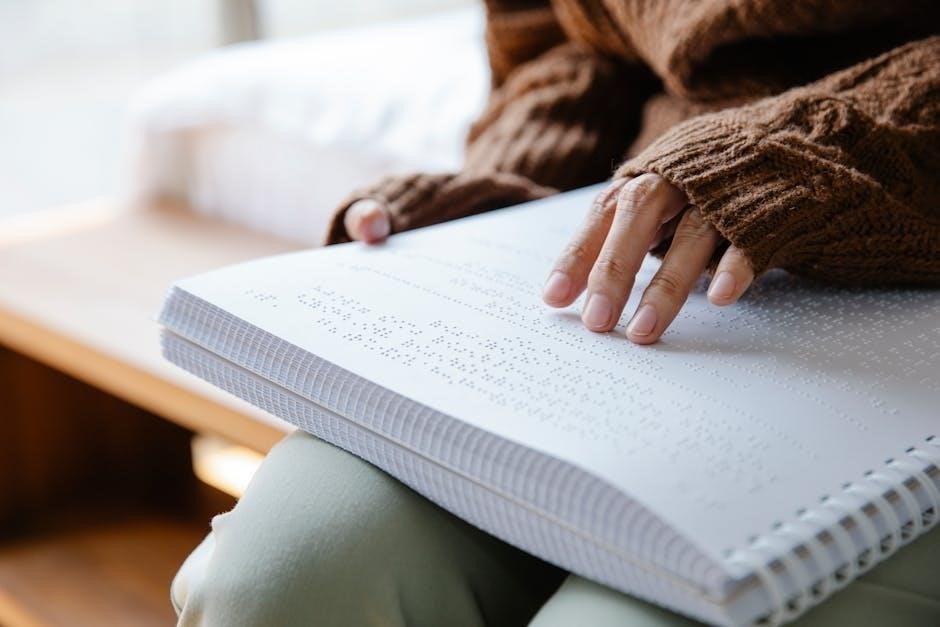
Understanding the French Alphabet and Pronunciation
The French alphabet includes 26 letters, similar to English, but with additional accented characters like ç, è, and ô. Pronunciation varies, with sounds like nasal vowels and silent letters.
The French Alphabet: Letters and Sounds
The French alphabet consists of 26 letters, identical to the English alphabet, but with distinct pronunciation rules. Each letter has a specific sound, and some letters, like r and u, are pronounced differently than in English. For example, the French r is guttural, while u is pronounced with rounded lips. Learning the correct sounds of each letter is essential for accurate pronunciation. Additionally, French uses accents like é, è, and ç, which alter pronunciation or meaning. Mastering the alphabet is the foundation for speaking and reading French fluently. This section provides a clear guide to each letter’s pronunciation, helping beginners build a strong linguistic base.
Accents and Special Characters in French
French uses several accents and special characters that are crucial for correct pronunciation and meaning. Common accents include é, è, ê, ë, ô, ö, î, ï, û, ü, and ç. These accents alter vowel sounds or indicate stress. For example, é is pronounced like “ay,” while è sounds like “eh.” The ç softens the sound of c before a, o, or u to “s.” Understanding and using these accents correctly is vital for clear communication. Beginners should practice writing and pronouncing words with accents to master French spelling and speech. Regular practice will help build confidence in using these unique characters effectively.
Basic Pronunciation Tips for Beginners
Mastering French pronunciation starts with understanding its unique sounds. Practice the pronunciation of vowels, such as u (pronounced like “oo” with rounded lips) and e (varies depending on its position). The French r is guttural, produced at the back of the throat. Pay attention to silent letters, like the final s in beaucoup. Liaisons, where a consonant is added between words, help with flow, e.g., les amis (pronounced “layz-amis”). Focus on intonation by stressing the penultimate syllable in most words. Regular listening to native speakers and consistent practice will improve your accent and clarity.

French Grammar for Beginners
French grammar introduces essential rules for sentence structure and word agreement. It focuses on verb conjugation, noun gender, and sentence formation basics, providing a clear foundation for beginners.
French grammar provides the framework for clear communication, offering a set of rules that govern sentence structure and word arrangement. While it can seem complex, French grammar is systematic, with predictable patterns once the basics are understood. It introduces essential concepts like verb conjugation, noun agreement, and sentence formation. Beginners should focus on mastering gender rules for nouns, adjective agreement, and pronoun usage. Understanding these foundational elements early on builds a strong base for further learning. Regular practice and review are key to grasping French grammar effectively, ensuring learners can express themselves confidently and accurately in everyday situations.
Gender in French: Masculine and Feminine Nouns
In French, nouns are categorized as either masculine or feminine, a fundamental aspect of grammar. Masculine nouns often end in consonants or vowels like -age, -eur, or -on, while feminine nouns typically end in -e, -ie, -tion, or -son. For example, le livre (the book) is masculine, and la maison (the house) is feminine. Articles and adjectives must agree with the noun’s gender, using le/les for masculine and la/les for feminine. Understanding gender is crucial for correct sentence formation and pronunciation. While some endings are consistent, many exceptions exist, making memorization essential for learners;
Plural Forms of Nouns in French
In French, forming plurals typically involves adding -s or -x to the singular form. For most masculine nouns ending in a vowel, add -s (e.g., le garçon → les garçons). For masculine nouns ending in a consonant, add -s (e.g., le chat → les chats). Feminine nouns usually add -s (e.g., la maison → les maisons). Some nouns ending in -eu add -x instead (e.g., le feu → les feux). Irregular plurals exist, such as l’œil → les yeux. Remember, plural nouns require plural adjectives and articles, such as les instead of le or la.
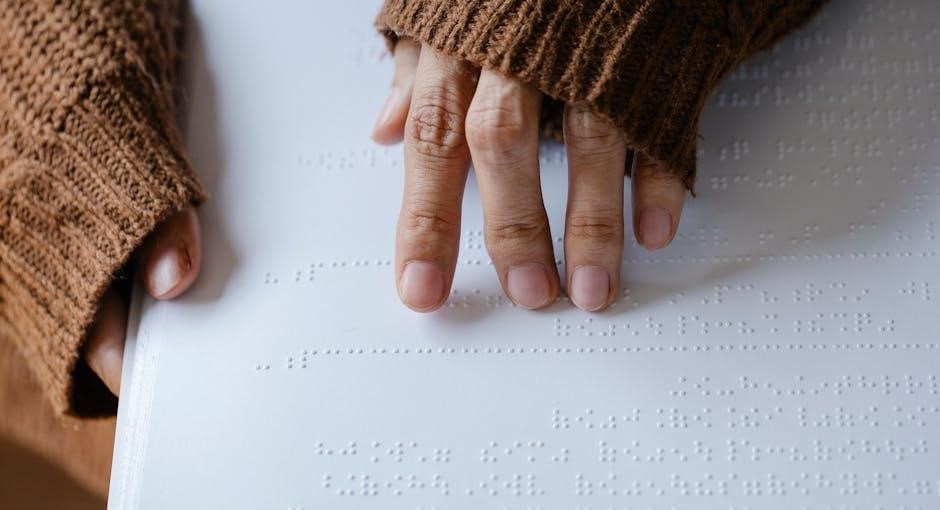
French Conjugation Made Simple
Mastering French conjugation involves understanding verb endings and subject pronouns. Start with regular -er, -ir, and -re verbs, then gradually tackle irregular ones. Focus on present tense first.
Regular and Irregular Verbs in French
French verbs are categorized as regular or irregular, with regular verbs following predictable patterns. Regular verbs end in -er, -ir, or -re and share common conjugations. Irregular verbs, like être (to be) and avoir (to have), don’t follow these patterns and must be memorized. Start with common regular verbs, such as parler (to speak) or finir (to finish), and gradually learn irregular ones. Understanding verb types is crucial for sentence formation. Practice lists of verbs grouped by endings to build familiarity. Regular verbs are easier to master, while irregular verbs require more time and practice due to their unique conjugations.
Present Tense Conjugation: Common Verbs
Mastering present tense conjugation is essential for building a strong foundation in French. Common verbs like être (to be), avoir (to have), parler (to speak), and manger (to eat) are frequently used. Regular verbs follow predictable patterns, while irregular verbs require memorization. For example, parler conjugates as je parle, tu parles, il/elle parle, nous parlons, vous parlez, and ils/elles parlent. Practice conjugating verbs in context to improve fluency. Start with high-frequency verbs and gradually expand your list. Regular practice with exercises will help solidify these conjugations in your memory.
Exploring past and future tenses is a crucial step in expanding your French language skills. The passé composé (present perfect) is the most common past tense, while the futur simple (simple future) is used for future actions. These tenses help you describe events that have already occurred or will happen later. For example, j’ai mangé (I ate) and je mangerai (I will eat). Regular verbs follow predictable patterns, but irregular verbs require memorization. Start with common verbs like faire (to do) and aller (to go). Practice these tenses with simple sentences and exercises to build confidence in using them correctly.

Building Your French Vocabulary
Start with common phrases, essential words, and basic categories like numbers, colors, and days. Focus on high-frequency vocabulary for everyday conversations and practical situations to build a strong foundation quickly.
Common Phrases and Expressions for Beginners
Mastering common French phrases and expressions is crucial for beginners. Start with greetings like Bonjour (Hello), Salut (Hi), and Goodbye (Au revoir). Learn essential questions such as Comment ça va? (How are you?) and Je m’appelle (My name is). Phrases like (Thank you) and De rien (You’re welcome) are polite and widely used. Expressions like S’il vous plaît (Please) and Excusez-moi (Excuse me) are important for etiquette. Practice basic sentences for introducing yourself, asking for directions, and ordering food. These phrases will help you communicate effectively in everyday situations.
Essential Vocabulary for Everyday Conversations
Building a strong foundation in essential French vocabulary is key to effective communication. Start with basic words like numbers (un, deux, trois) and common nouns (eau for water, pain for bread). Learn family terms such as mère (mother), père (father), frère (brother), and sœur (sister). Include everyday objects like maison (house) and école (school). Focus on verbs like manger (to eat), boire (to drink), and parler (to speak). These words are vital for constructing simple sentences and engaging in basic conversations. Practice them regularly to improve your speaking and listening skills.
Learning Numbers, Colors, and Days of the Week
Mastering numbers, colors, and days of the week is fundamental for French beginners. Numbers like zéro (0), un (1), deux (2), up to dix (10) are essential. Colors such as noir (black), blanc (white), and rouge (red) are basics. Days of the week include lundi (Monday), mardi (Tuesday), mercredi (Wednesday), jeudi (Thursday), vendredi (Friday), samedi (Saturday), and dimanche (Sunday). These basics help build a strong foundation for forming sentences and understanding time concepts. Use flashcards or repetition to memorize them effectively.
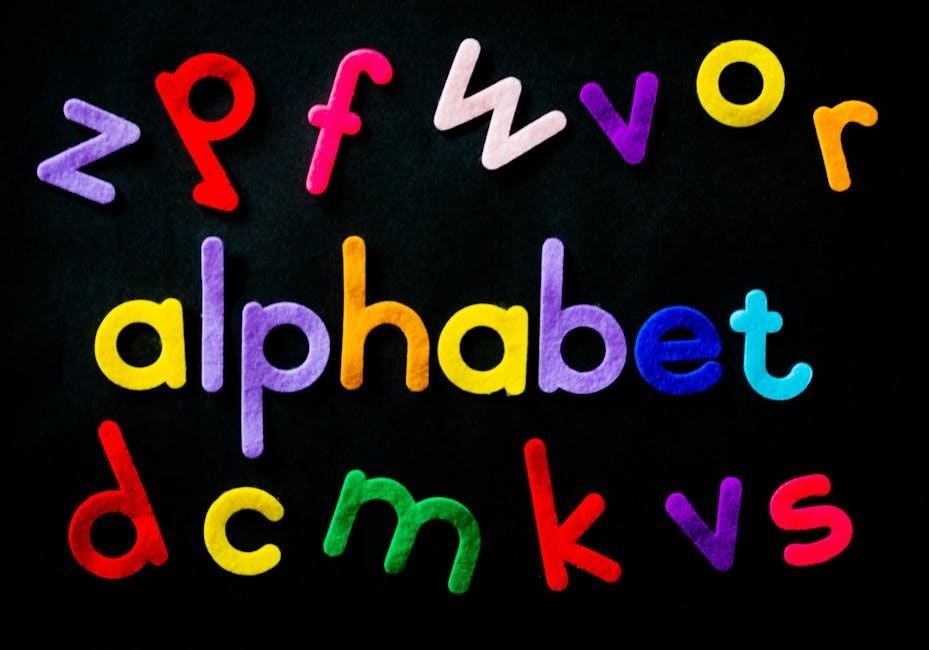
French for Beginners Checklist
- Set clear learning goals and track progress regularly.
- Practice pronunciation daily using audio resources.
- Learn basic grammar rules and common verbs.
- Build vocabulary with flashcards and exercises.
- Engage in regular speaking and listening practice.
- Review and reinforce lessons consistently.
- Stay motivated with achievable milestones.
First Steps in Learning French
Begin by familiarizing yourself with the French alphabet and basic pronunciation. Start with common greetings like “Bonjour” (hello), “Salut” (hi), and “Au revoir” (goodbye). Learn essential phrases such as “Merci” (thank you) and “S’il vous plaît” (please). Practice basic introductions like “Je m’appelle” (my name is). Focus on understanding and mimicking French accents and sounds. Set aside time daily to review and practice, even if briefly. Use language apps or PDF guides to structure your learning. Lastly, immerse yourself by listening to French music, watching French videos, or speaking with native speakers to build confidence and familiarity with the language.
Setting Realistic Goals for Language Learning
Setting realistic goals is crucial for steady progress in learning French. Start by breaking down your learning into manageable parts, such as focusing on vocabulary, grammar, or pronunciation weekly. Define clear, achievable milestones, like mastering 10 new words daily or learning one grammar rule per week. Avoid overwhelming yourself with too much at once. Set both short-term and long-term objectives, such as holding basic conversations or reading simple texts. Track your progress regularly and adjust your goals as needed. Celebrate small victories to stay motivated and remind yourself that consistency is key to becoming proficient in French.
Staying Motivated and Consistent
Staying motivated and consistent is essential for successfully learning French. Celebrate small achievements, like mastering a new phrase or understanding a sentence, to keep spirits high. Find a study method that brings joy, whether it’s through apps, music, or conversing with native speakers. Establish a daily routine, even if brief, to build a consistent learning habit. Share your goals with others to stay accountable and track progress. Surround yourself with French by watching French movies or listening to French music. Remember, consistency is more important than intensity, and staying motivated will keep you on track to fluency.

Free French PDF Resources for Beginners
Discover free French PDF resources designed for beginners, offering grammar guides, vocabulary lists, and exercises. Downloadable worksheets and language learning materials are available online for easy access.
Downloadable French Worksheets and Exercises
Enhance your French learning journey with downloadable worksheets and exercises tailored for beginners. These resources cover grammar, vocabulary, and pronunciation, providing structured practice to build foundational skills.
Many websites offer free PDF worksheets that focus on specific topics, such as verb conjugation, noun gender, and sentence formation. Exercises are designed to be interactive and engaging, helping you track your progress effectively.
Whether you’re practicing basic phrases or refining your listening skills, these printable materials are a valuable tool for consistent and enjoyable learning. They’re perfect for self-study or supplementary use alongside a French language course.
French Language Learning Guides in PDF Format
French language learning guides in PDF format are an excellent resource for beginners, offering comprehensive and structured lessons. These guides typically include grammar rules, vocabulary lists, and practical exercises to enhance your learning experience. Many PDF guides are designed to be interactive, with quizzes and exercises to test your progress. They often cover essential topics like pronunciation, verb conjugation, and common phrases, making them ideal for self-paced learning. Available on various educational websites, these guides are portable and convenient, allowing you to study anywhere. They provide a clear roadmap for mastering the basics of French, ensuring a strong foundation for further learning.
French Vocabulary and Grammar Cheat Sheets
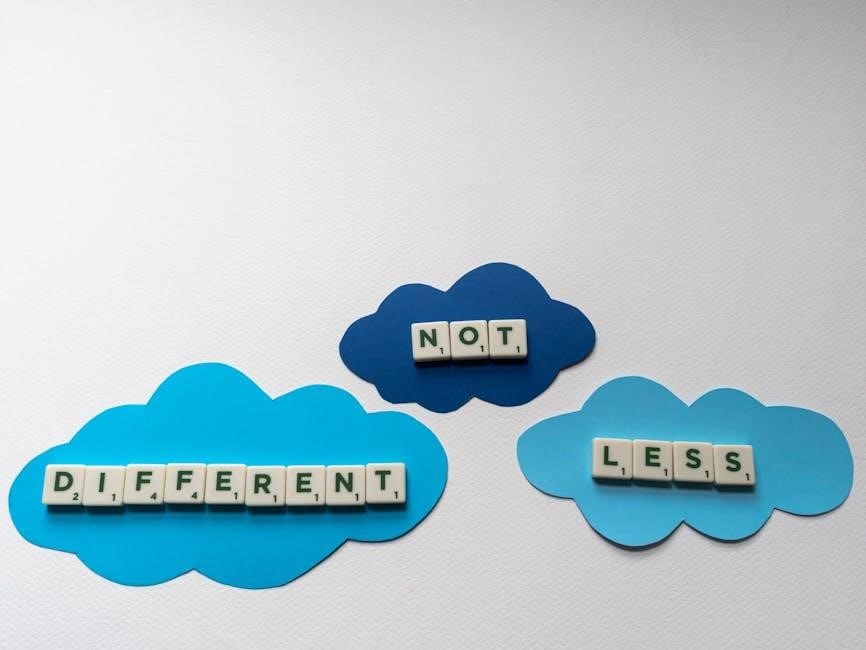
French vocabulary and grammar cheat sheets are invaluable tools for beginners, offering quick access to essential language elements. These sheets typically include lists of high-frequency words, common phrases, and fundamental grammar rules. They often cover topics like verb conjugations, noun genders, and sentence structures, presented in a clear, concise format. Many cheat sheets are available as downloadable PDFs, designed to be printed and carried for on-the-go learning. They help reinforce memory by providing visual aids and summaries, making complex concepts easier to grasp. These resources are perfect for rapid review and serve as a handy reference for learners at any stage.
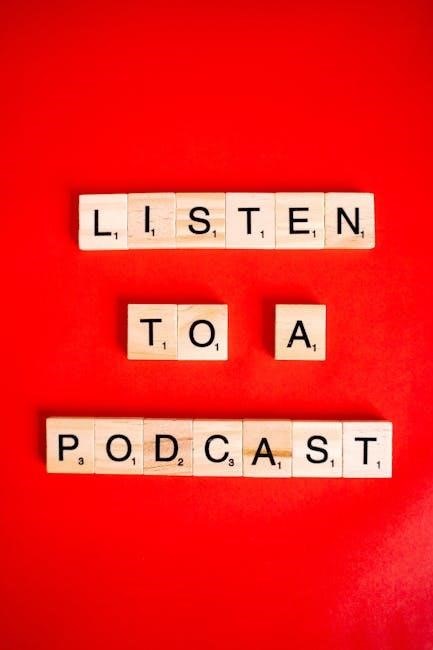
Practical Tips for Learning French
Immerse yourself in the language by watching French movies, listening to music, and speaking daily. Set achievable goals, practice consistently, and use flashcards for vocabulary. Stay motivated!
- Speak from day one, even with mistakes.
- Use language apps for interactive learning.
- Stay consistent with short daily sessions.
Using Flashcards for Vocabulary Building
Flashcards are an effective tool for memorizing French vocabulary. Write the French word on one side and its English translation or pronunciation on the other. Regularly review the cards, focusing on difficult words. Use spaced repetition to enhance retention. You can create physical cards or use digital apps like Anki or Quizlet. Organize flashcards by themes (e.g., food, numbers) to build contextual knowledge. Test yourself frequently and track progress. This method helps build a strong foundation and accelerates learning. Consistency is key—review a set number of cards daily to gradually expand your vocabulary.
Immersion Techniques for Language Learning
Immersion is a powerful way to learn French by surrounding yourself with the language. Start by changing your environment: set your phone and social media to French. Watch French movies, listen to French music, and follow French podcasts. Engage in conversations with native speakers through language exchange programs or online platforms. Label household items with their French names to reinforce vocabulary. Practice thinking in French during daily activities. Consistency is key—immerse yourself as much as possible to build familiarity and confidence; These techniques create a natural learning process that simulates how natives acquire language from birth.
Practicing French Regularly: Tips and Tricks
Consistency is key to mastering French. Dedicate 15–30 minutes daily to practice, focusing on different skills like reading, writing, speaking, and listening. Use language apps like Duolingo or Babbel for structured lessons. Set achievable goals, such as learning five new words or practicing a short conversation. Engage in speaking exercises by talking to native speakers or using language exchange platforms. Immerse yourself by watching French TV shows or listening to French podcasts. Track your progress with a language journal to stay motivated. Celebrate small victories to maintain enthusiasm and keep improving steadily over time. Regular practice builds confidence and fluency.
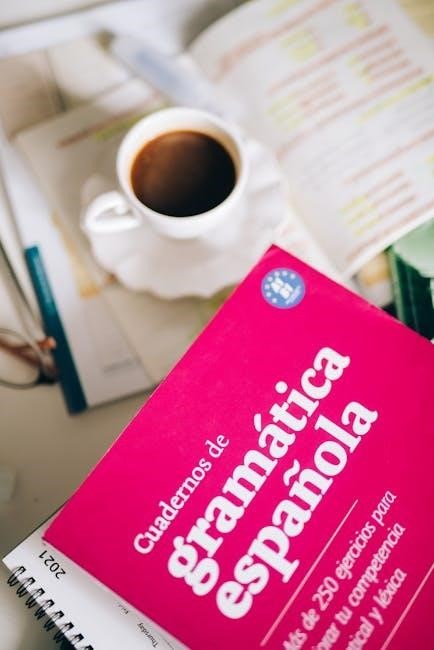
Cultural Aspects of Learning French
Understanding French culture enhances language learning. Explore traditions, customs, and communication styles to deepen your connection with the language and its native speakers, fostering fluency and appreciation.
Understanding French Culture and Traditions
Understanding French culture is essential for learners, as it provides context to language use. France is renowned for its rich history, art, and cuisine. Key traditions include Bastille Day, celebrated on July 14th, symbolizing national pride, and Christmas markets, showcasing local crafts. Cultural symbols like the Eiffel Tower and the Louvre highlight France’s historical and artistic significance. Traditional foods such as croissants, baguettes, and cheese reflect the country’s culinary excellence. Embracing these cultural aspects helps learners connect with native speakers and enhances their language acquisition experience. This cultural knowledge enriches the learning journey, making it more engaging and meaningful.
The Role of Etiquette in French Communication
Etiquette plays a significant role in French communication, emphasizing politeness and respect. Greetings like Bonjour (hello) and Merci (thank you) are essential. Formal language is often preferred in professional or formal settings, using vous instead of tu. Respect for personal space and punctuality is highly valued. French communication also involves subtle body language, such as shaking hands when meeting or leaving. Understanding these norms helps learners navigate social interactions smoothly. Mastering etiquette enhances your ability to connect with native speakers and demonstrates cultural respect, making your language learning journey more effective and enjoyable.
Cultural Differences in French-Speaking Countries
French-speaking countries exhibit diverse cultural practices despite sharing a common language. France, Quebec, Belgium, Switzerland, and African nations like Senegal each have unique traditions. Language variations include regional slang and accents, which may not always be understood across borders. Social norms, such as greeting styles or dining etiquette, can differ significantly. For example, formalities in France may contrast with the more casual approach in Quebec. Understanding these differences enriches your learning experience and helps you adapt to various contexts. Recognizing cultural diversity within the Francophone world fosters deeper connections and enhances your ability to communicate effectively in different settings.
Mastering French opens doors to rich cultures and global opportunities. Stay consistent, immerse yourself, and enjoy the journey. Bonne chance with your French learning every day!
Final Tips for Successful French Learning
Consistency is key—dedicate time daily to practice, even if briefly. Use flashcards for vocabulary and apps for interactive learning. Immerse yourself by watching French films or listening to music. Speak regularly, even if mistakes happen, as practice builds confidence. Set achievable goals, like learning five new words weekly. Stay motivated by celebrating small milestones. Surround yourself with French materials to create a language-rich environment. Embrace the journey and enjoy the process of mastering this beautiful language. Bonne chance, and remember, every step brings you closer to fluency!
Encouragement for Continuing Your Journey
Learning French is a rewarding journey, and every small achievement is a step toward mastery. Celebrate your progress, no matter how minor, as it reflects your dedication. Remember, language learning is a marathon, not a sprint. Surround yourself with positive influences and supportive communities to stay inspired. Embrace the beauty of French culture and the joy of connecting with its speakers. Persistence and passion will guide you through challenges. Keep exploring, practicing, and enjoying the process. Your efforts will unlock countless opportunities to communicate, understand, and appreciate the richness of the French language and its vibrant culture.